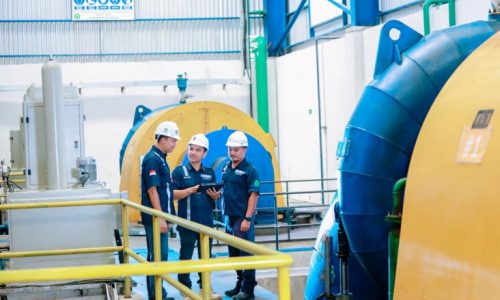The Sea Toll program initiated by President Joko “Jokowi” Widodo as a solution to reduce national logistics costs and strengthen maritime connectivity in his second term of government has yet to provide significant economic impact, a top company executive says.
“We have tried to increase the volume and scale of logistics so that costs can be reduced,” President Director of State-owned port operator PT Pelindo, Arif Suhartono, spoke to Indonesia Business Post on the sidelines of the BNI Investor Daily Summit 2024 held in Jakarta on Wednesday, October 9, 2024.
He, however, hinted the challenge in creating sufficient economic activities for ships to sail through the sea toll route, citing the lack of volume of goods transported as the main obstacle.
“We can build ports and provide ships, but if there are no goods to transport, everything is in vain,” Arif said.
“This shows that the large infrastructure built has not succeeded in triggering economic growth in the areas served by the sea toll road,” he added.
On the other hand, the government also faces challenges in separating commercial and non-commercial logistics needs. In theory, if the volume of logistics transported is large, then cost efficiency can be achieved. However, in practice, the need for large ships is not in line with economic growth in the areas passed by the sea toll road.
Arif suggested that the government provide incentives to encourage the maritime industry, such as tax relief for logistics ships. However, he again hinted the issue of volume as key because in the absence of significant increase in economic activity, large ships deployed for the sea toll program will continue to sail with minimum loads.
“The most important thing is how to create and trigger economic activity so that the volume can increase,” he said.
Since its launch, the Sea Toll program has been aimed at reducing the price disparity of goods between the western and eastern regions of Indonesia. However, if it is not accompanied by an adept economic strategy in the regions, the large ports that are built will become “white elephants” without any real impact on reducing logistics costs.
Thus, according to Arif, although the infrastructure already exists, the Sea Toll program requires a further strategy that is able to encourage economic growth in remote areas in order to support its sustainability.









